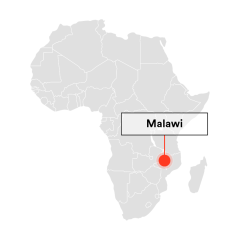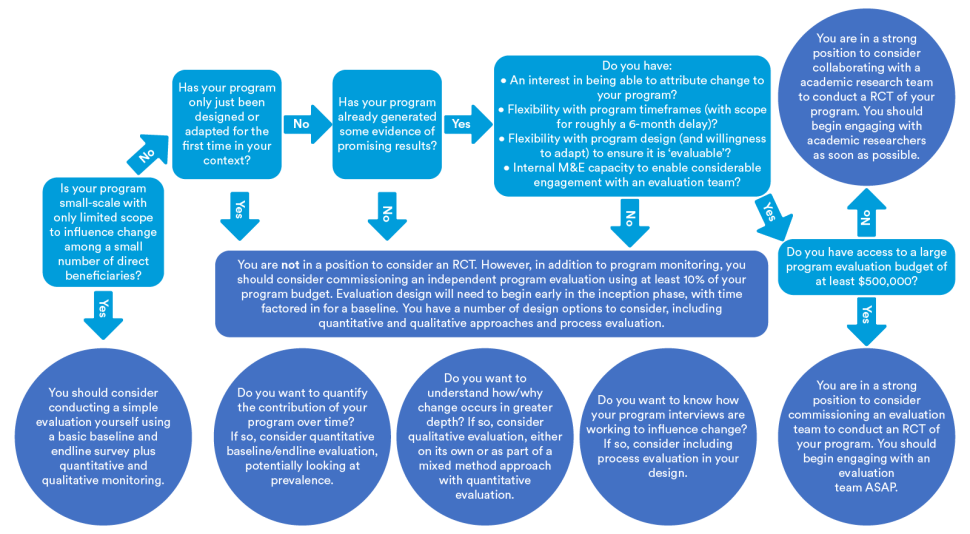Select an evaluation strategy

Select an evaluation strategy
Case Studies

In 2021, the Spotlight Initiative team in Malawi conducted a mid-term assessment to take stock of the first phase of the Spotlight Initiative programme, which ran from 2019-2022. The aim was to assess the relevance, efficiency, effectiveness, and sustainability of the programme and to develop relevant recommendations to improve project implementation.
The evaluation team conducted Key Informant Interviews (KIIs) and Focus Group Discussions (FGDs) with 62 individuals. These were spread across national and sub-national levels and included six government officials, three EU Delegation staff, 12 representatives from UN organisations, two members of the Civil Society National Reference Group, six implementing partners, and four other stakeholders including the Chairperson of a Media Network.
In addition, the evaluation team conducted four FGDs with 30 beneficiaries. For example, to assess their work supporting out-of-school boys and girls of primary school age, they interviewed five boys and seven girls involved in their programme. They interviewed the boys and girls separately to promote free expression of their perceptions and views. In addition, to assess Spotlight Initiative’s work developing a Community of Practice on child protection, the evaluation team conducted a focus group discussion with one chief, two representatives of a Community Victim Support Unit, one Child Protection Officer, two Mentors, and one Chairperson from the Village Savings Loans. This was the only focus group discussion where there were both male and female participants. This decision to have a mixed-gender FGD was made following feedback from these individuals that having a mixed group would not affect their ability to share opinions.
To supplement the KIIs, the evaluation team also developed an online survey to gather views about and experiences of the programme. This was responded to by 57 individuals including 14 government officials, 22 representatives from UN Agencies and 21 implementing partners. It was also supplemented by a document review that included key programme materials and an internal mid-term review that was undertaken in 2020.
Challenges: The Spotlight Initiative evaluation team faced challenges in data collection due to the limited time available. This led to multiple interviews being rescheduled due to delays. The flexibility of participants was essential to enabling an additional eight interviews to take place. In addition, the evaluation team were unable to review certified financial reports for the final quarter of 2020, meaning that the document review was incomplete.
Impact: The Spotlight Initiative team developed a proposal for amendments to the programme based on the findings from the Mid-Term Assessment. This proposal included the development of a Malawi Grassroots Action Plan (GAP), to support the capacity building of grassroots actors partnering with Spotlight Initiative. It also included scaling up the use of mobile legal assistance in response to the challenges to accessing assistance during COVID-19. The Spotlight Initiative team presented this proposal along with the findings from the Mid-Term Assessment to the National Steering Committee. The National Steering Committee supported the proposal and provided recommendations that the programme 1) conduct consultations on sustainability to further develop the sustainability strategy, 2) strengthen involvement of the central level ministries, 3) and conduct orientations on the new proposal at district level to ensure understanding and buy-in at Government level.








